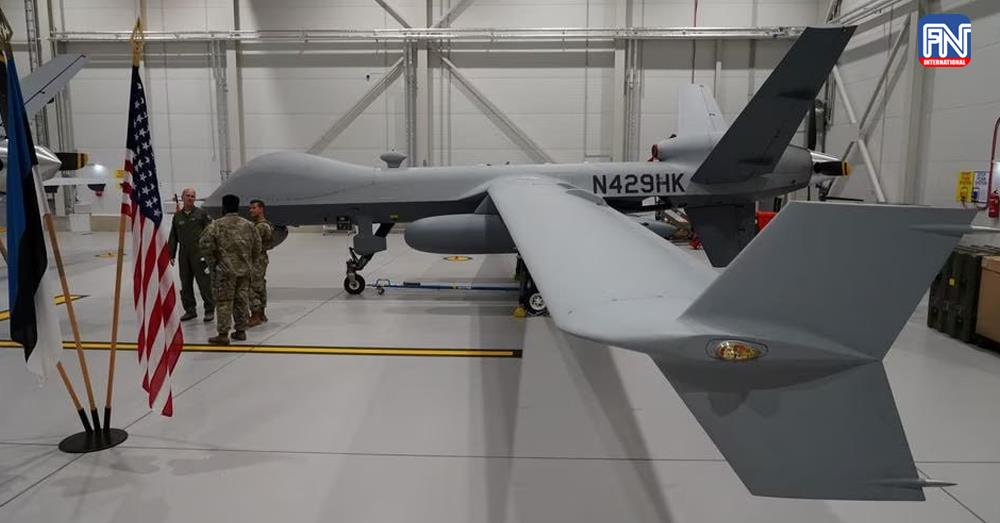WASHINGTON, March 15 (Reuters) - The U.S. military said a Russian fighter plane clipped the propeller of one its spy drones and made it crash into the Black Sea on Tuesday in the first such direct encounter between the two world powers since Russia invaded Ukraine over a year ago.
The Russian defence ministry offered a different account and Moscow's ambassador to Washington said his country viewed the incident involving a U.S. MQ-9 drone and Russian Su-27 fighter jet as a provocation.
The United States conducts regular surveillance flights in the region and has supported Ukraine with tens of billions of dollars in military aid, although it has not become directly engaged in the war.
Two Russian Su-27 jets carried out what the U.S. military described as a reckless intercept of the American spy drone while flying in international air space. It said the Russian fighter jets dumped fuel on the MQ-9 - possibly trying to blind or damage it - and flew in front of it in unsafe manoeuvres.
After around 30 to 40 minutes, at 7:03 a.m. (0603 GMT), one of the jets then collided with the drone, causing it to crash, the U.S. military said.
Russia has not recovered the drone and the jet was likely damaged, the Pentagon said.
"In fact, this unsafe and unprofessional act by the Russians nearly caused both aircraft to crash," U.S. Air Force General James Hecker, who oversees the U.S. Air Force in the region, said in a statement.
Russia's defence ministry denied that its aircraft had come into contact with the unmanned aerial vehicle (UAV), which it said had crashed after "sharp manoeuvring". It said the drone had been detected near the Crimea peninsula, which Moscow annexed from Ukraine in 2014.
"The Russian fighters did not use their onboard weapons, did not come into contact with the UAV and returned safely to their home airfield," the defence ministry said.
The accounts of the incident in the Black Sea, which is bordered by Russia and Ukraine among other countries, could not be independently verified.
"This is a very sensitive stage in this conflict because it really is the first direct contact that the public knows about between the West and Russia," said Elisabeth Braw, a senior fellow at the American Enterprise Institute in Washington.
Russia's Ambassador to Washington Anatoly Antonov was summoned by the U.S. State Department to discuss what happened over the Black Sea, spokesperson Ned Price said.
